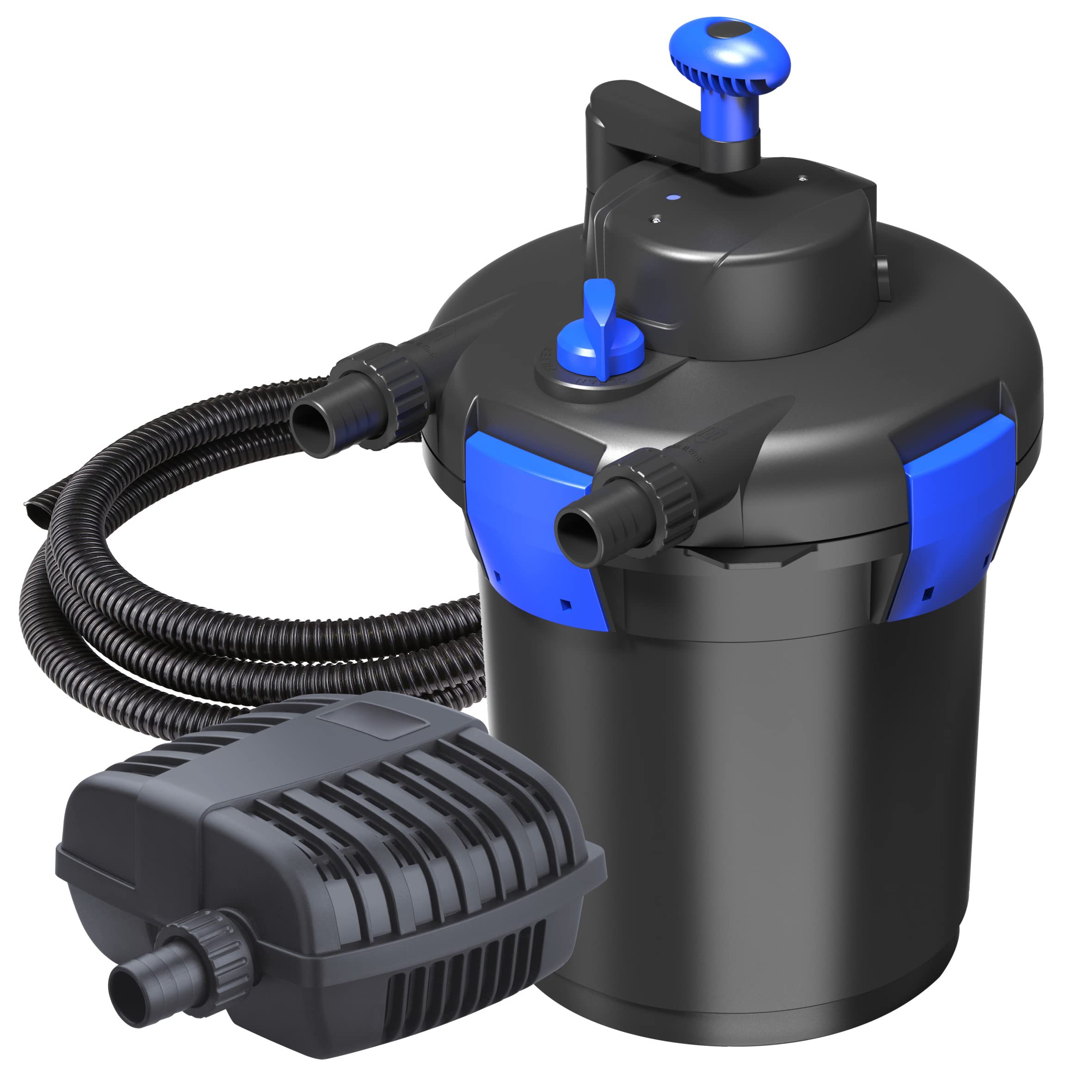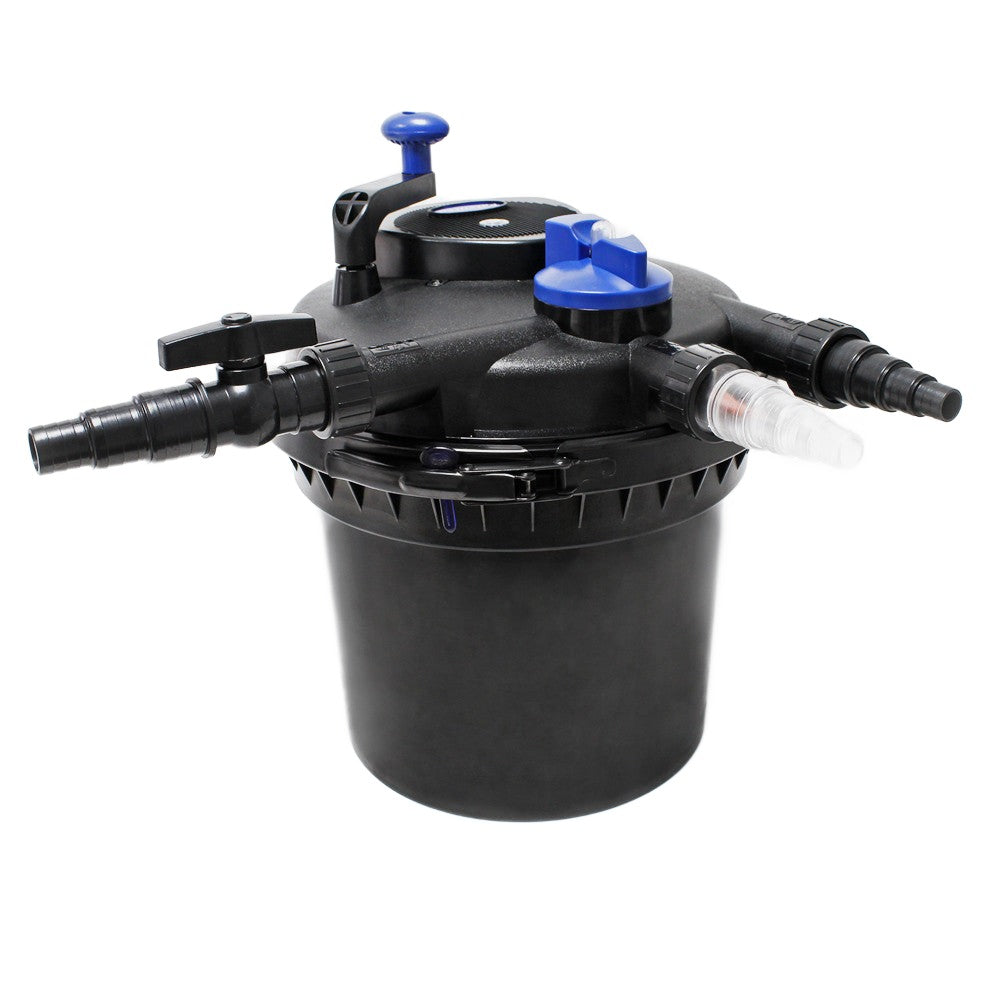To maintain a clean and clear pond, you will require a good filtering system. Ignoring it allows the pond to gradually turn the water cloudy. It produces a poisonous ecosystem that hinders development of aquatic species. An efficient filtration system balances the overall well-being of the pond, controls algae development, and keeps water quality pure. The pond size, fish count, and a personal choice will all influence the kind of filter you will need.
Types of Pond Filters
- Biological filters comprise of beneficial bacteria that break down the toxic ammonia and nitrites turning them into harmless nitrates.
- Mechanical filter removes leaves, dirt, or fish waste, ensuring that the water never turns murky.
- UV filters work with ultraviolet light, which zaps the algae and bad bacteria thus preventing green water and maintaining water clarity.
- Pressure filters are recommended, where water flow is high. These filters can mechanical and biological filters or any other effective filtration method.
Furthermore, Oase pond filters are popular for their advanced filtration technology, which provides high-performance solutions for different pond sizes in the UK market. Pond Guy Services is an appropriate source to contact for those clients who require professional installation and maintenance.
Pond Filter Maintenance Tips
Pond filters need regular care to work well. Clean mechanical filters often to keep water flowing. Be gentle with biological filters so you don’t lose good bacteria. Change UV filter bulbs so they keep algae away. Check pipes and pumps for leaks, and do not let them clog. Test the water’s pH, ammonia, and nitrates a lot. Feed fish only what they need and care for plants to help the filter work better.
Common Issues and Solutions
Problems can still happen with pond filters. Less water flow means the filter might be blocked, so clean or replace it. Cloudy pond water may come from too much waste or imbalance. Feed fish less and add plants to clear the water. If algae grow, UV bulbs might be old, so change them. If the pond pump isn’t working well, debris or loose parts might be the problem.
Choosing the Right Filter for Your Pond
Picking the right filter needs some thought. The filter should fit the size of the pond, the number of fish, and how much upkeep you want to do. Big ponds may need more than one type of filter. Small ponds may do well with basic mechanical and biological filters. Look at different filter brands and talk with experts. Think about how easy it is to take care of and how much it will cost to replace parts.
Conclusion
Filters keep ponds clean and healthy. Regular care stops problems that can harm fish and plants. Know what filters do, fix common problems, and stay on top of pond care. This will make your pond clear and full of life. Whether the pond is small and for show or big and a significant feature, good filters will ensure fish and plants have a great place to live.



